July 10, 2022 - Twenty years a foreigner in Croatia. Part 2 of 20 Ways Croatia Changed Me in 20 Years, and where would life here be without olives?
Back in 2002, my relationship with olives extended little further than knowledge of the phrase 'to extend an olive branch' and eating the token olive in the centre of a takeaway pizza. Olive oil was just something I never came across, and if I had consumed more than half a litre in the first 33 years of my life, I would be surprised.
All that changed with the fateful (and excellent) decision to buy a house and move to Hvar in 2002. As my 20th anniversary in this beautiful land approaches next month, the second installment of 20 Ways Croatia Changed Me in 20 Years, after yesterday's Business and Dalmatia.
2. Olives
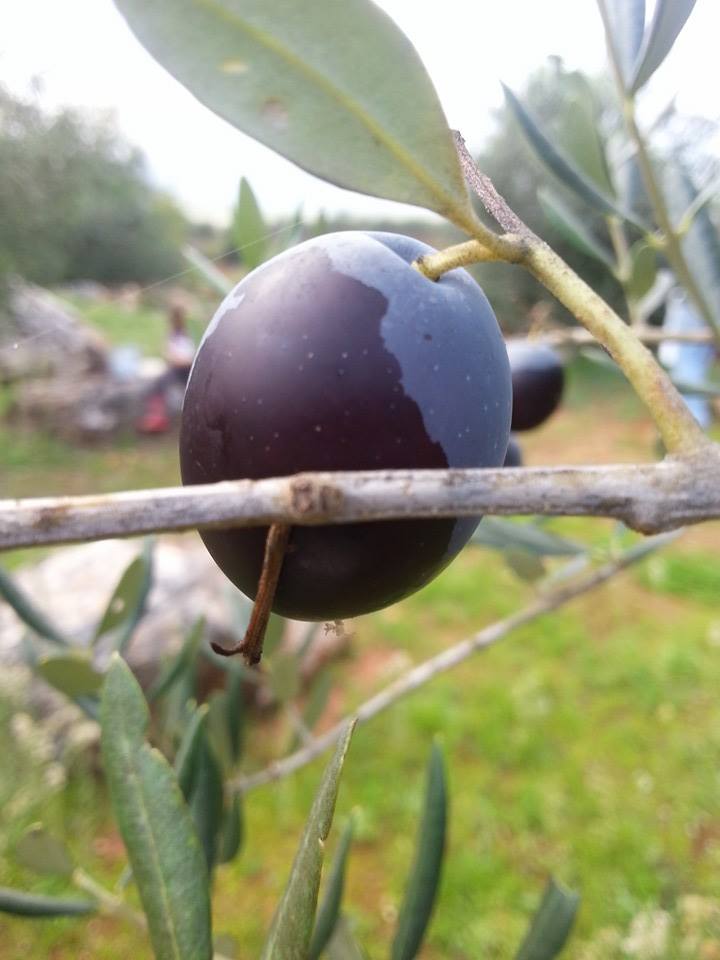
One of the many benefits of being a Dalmatinski Zet (Dalmatian son-in-law) is the wonderful home cooking of one's wife and mother-in-law. And - like most Dalmatian families - a proportion of the food on the table came from the family field. Unlike the insipid vegetables available 24/7, 365 days a year in Manchester supermarkets, here was high-quality fresh produce with real taste and colour, only available in the season that Mother Nature intended.
And laced with olive oil.
This golden liquid, with which I was so unfamiliar, was simply EVERYWHERE. A salad without a generous helping of olive oil was simply impossible. It did not take me long to adapt, or to understand why the Hvar Mediterranean diet was awarded intangible UNESCO heritage status back in 2013. With fresh food and quality olives and olive oil, no wonder people here seemed much more contented with life.
And the domestic olive oil has always been a highly-prized gift when visiting friends. Eyes light up when they accept a litre of home-produced olive oil from the island of Hvar. As well they might.
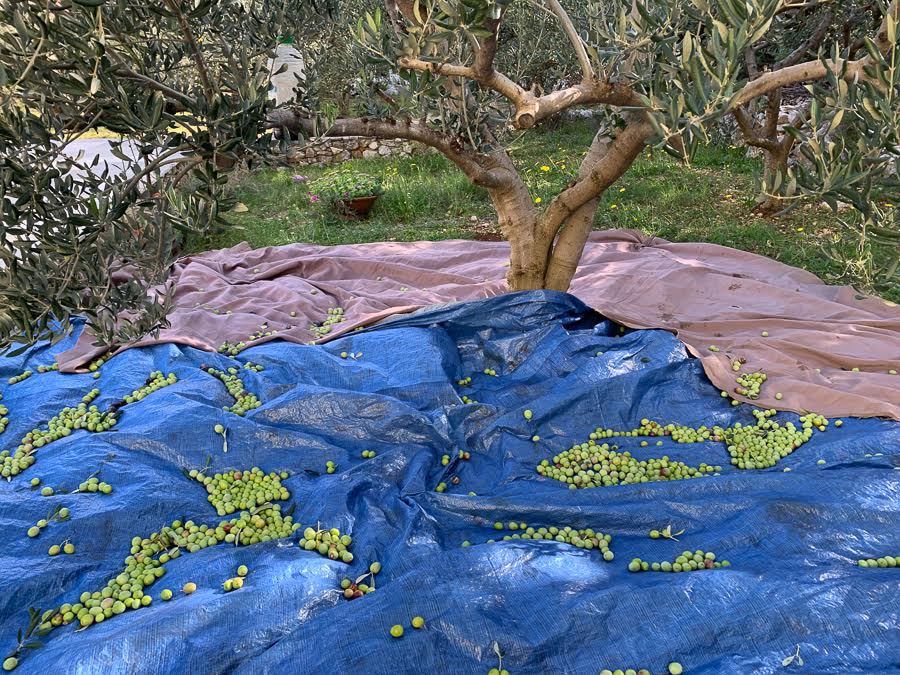
But while my diet has undoubtedly changed for the better with the liberal addition of olive oil and other tasty Dalmatian gourmet wonders, olives changed me more for a different reason during my time in Croatia, and they taught me one of the most important lessons about life there - the strength of community and tradition. For one cannot claim to have truly experienced Dalmatia without having participated in one of its most sacred activities.
The olive harvest.
I used to hate the olive harvest. Our family has a field which includes a vineyard and about 80 olive trees, which have been lovingly tended for years by my late father-in-law. Helping out at the olive harvest is expected, and I used to help out between work, but never really see it as more than a chore. Manual labour in the fields is not my forte.
But then something changed, gradually for sure, but with an intensity once we left the island and moved to Varazdin 6 years ago. I felt the need to connect and take part in the olive harvest, not so much as a chore, but as part of the community and tradition. When I moved to Hvar, the idea of standing in a field for days picking olives would have been my idea of hell, but now it is a time of year I look forward to, and I certainly feel 'the call of the olives.'
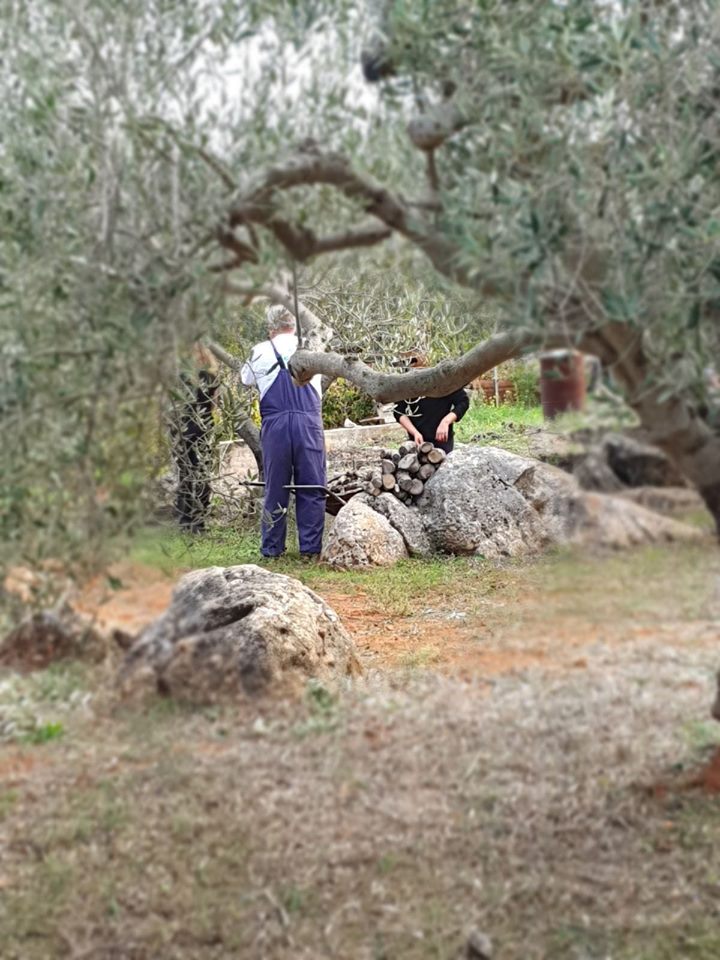
About 15 years ago, I was doing a presentation to the management board of one of Croatia's biggest companies, whose board included a senior member from my adopted hometown of Jelsa. It was October and his colleagues were joking that it was good I had come this week, as next week he would have been unavailable, as he had to tend his fields. There was a smile and a look of longing in his face, a quiet satisfaction that he would be trading in his suit for his overalls, leaving corporate Zagreb for a while to be close to the earth and the family olives. It is one of the many moments of my time in Croatia I will never forget, for while I did not quite understand his emotions at the time, I totally do now, as the culture of that marvellous golden liquid has clearly entered my veins over the years.
The Dalmatian olive harvest is about much more than olives. It is about community, of extended families, young and old, coming together to help out, socialise, and continue a tradition that has lasted millennia. The picking is hard work, but it soon becomes routine as you enter a rhythm, and with a whole field to choose from, you can choose a picking partner you have not caught up with for a while. And what a great experience for the little ones, who get yet one more opportunity to cement their bond with nature. Kids help out with a little picking, carrying empty crates, helping moving the sheets on the ground, and then running around in an extended and very safe playground under the watchful eye of their olive-picking parents. An affinity with Nature you just can't find in Manchester.
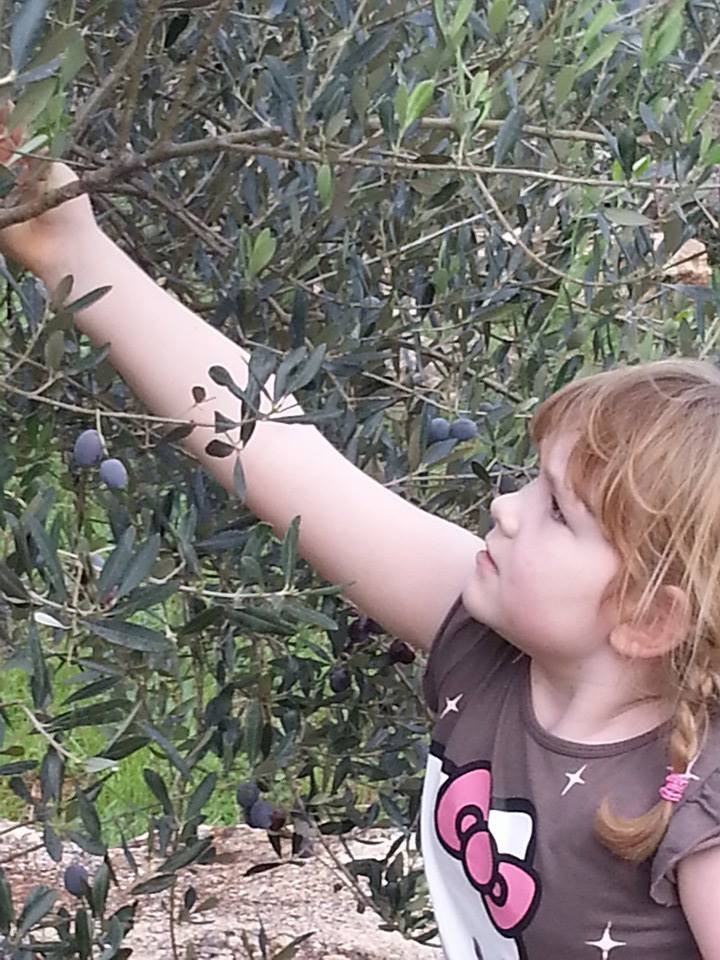
It is a truly beautiful sight driving from Jelsa to Stari Grad in late October to see ageing Renault 4 and similar cars parked sporadically at the side of the road, close to fields where whole families are busy picking the family olives. A whole island harvesting the gifts that Nature gives them every year, as it has done for more than two millennia.
Extended families recalled from the mainland by the call of the olives.
Community.
Timeless.
I love it.
Hard work should be rewarded, of course, and a full day's picking is rewarded by a feast fit for kings. Like many other fields, ours has a rustic hut, which is primarily used for storage and a little hideaway to enjoy social gatherings.
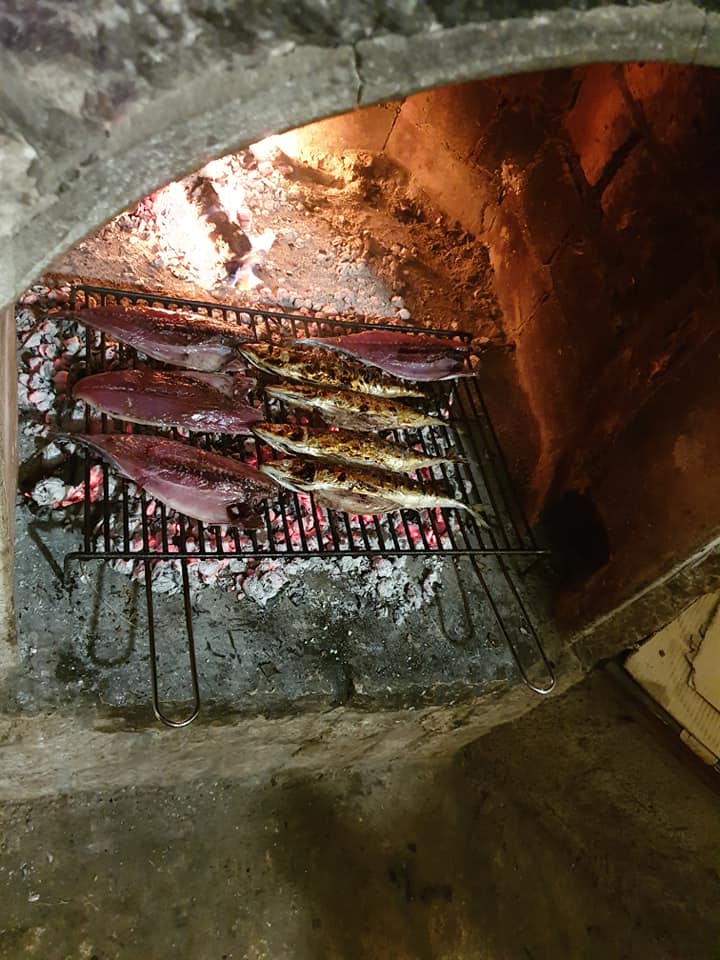
Pride of place is the grill, of course, and tired but happy olive pickers will head inside as the last of the olive-picking light fades to rest and reflect on a successful day over grilled fish and a glass or three of wine. These are some of my very favourite meals in Croatia, simple in their preparation, superb in their taste. Fresh fish on the grill, laced in - you guessed it - olive oil (they say that fish in Dalmatia swim three times - firstly in the sea, then in olive oil during preparation, then washed down with fine Dalmatian wine).
Salads laced in - you guessed it - olive oil are usually prepared in advance, with ingredients from the field of course. And there is bread, which can be used to soak up - you guessed it - olive oil to add to its taste. Wine in 2-litre plastic bottles that used to contain Coca-Cola, pressed from grapes in the field. A 100% fabulous and very cosy Dalmatian culinary experience, with only the bread, and fish from the nearby Adriatic not coming from the field.
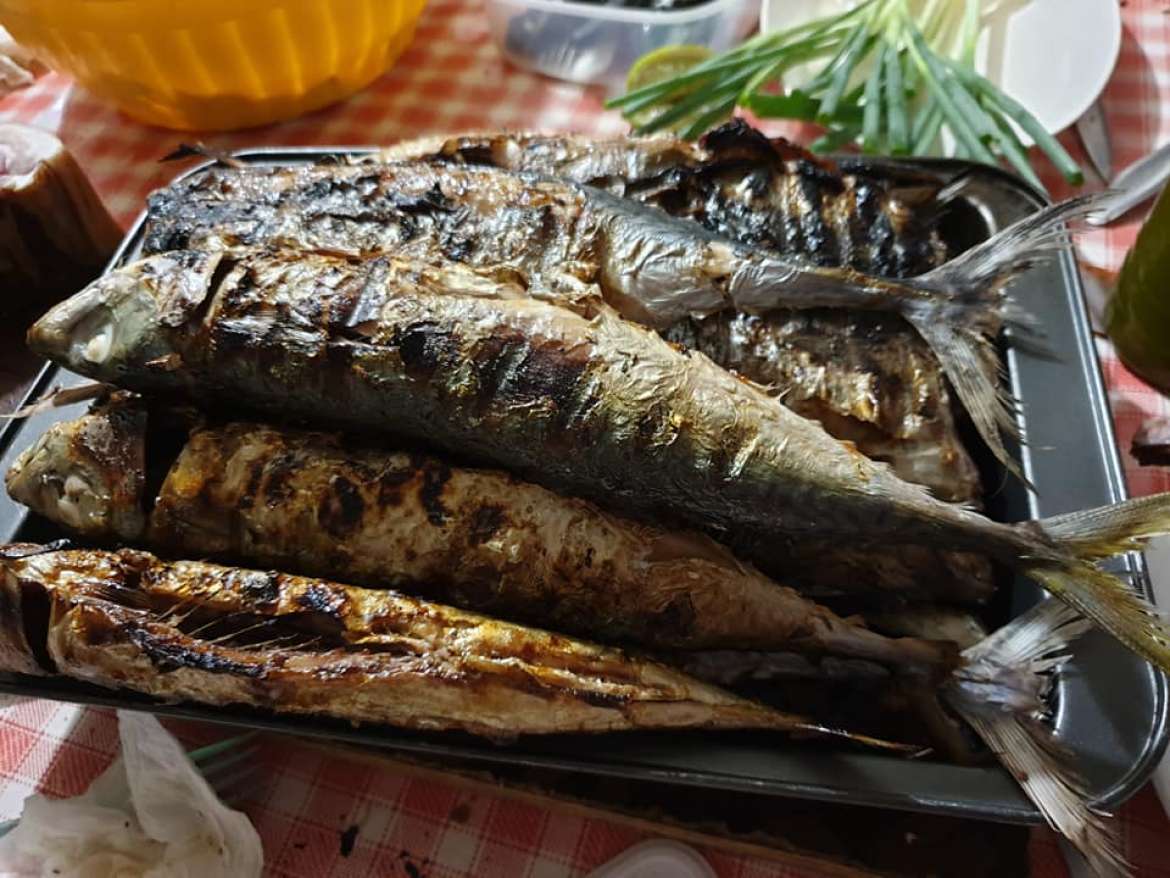
Dalmatian cuisine at its finest.
Before I improved my understanding of Dalmatia, I used to rail against the pure economics of the whole olive harvesting experience. A litre of oil used to cost 70-80 kuna, or around 10 euro. The family trees would give around 200 litres a year, enough for the family consumption for the whole year (remember that half a litre max for the first 33 years of my life, before moving to Croatia). So about 2,000 euro in total. Then deduct all the time maintaining the trees over the years, as well as the time of about 8 pickers full-time for 5-6 days, the cost of the magnificent lunches, the transport costs of those answering the call of the olives from Zagreb and beyond. Surely it would be more economical and less stress to simply keep working during that time and buy the oil elsewhere?
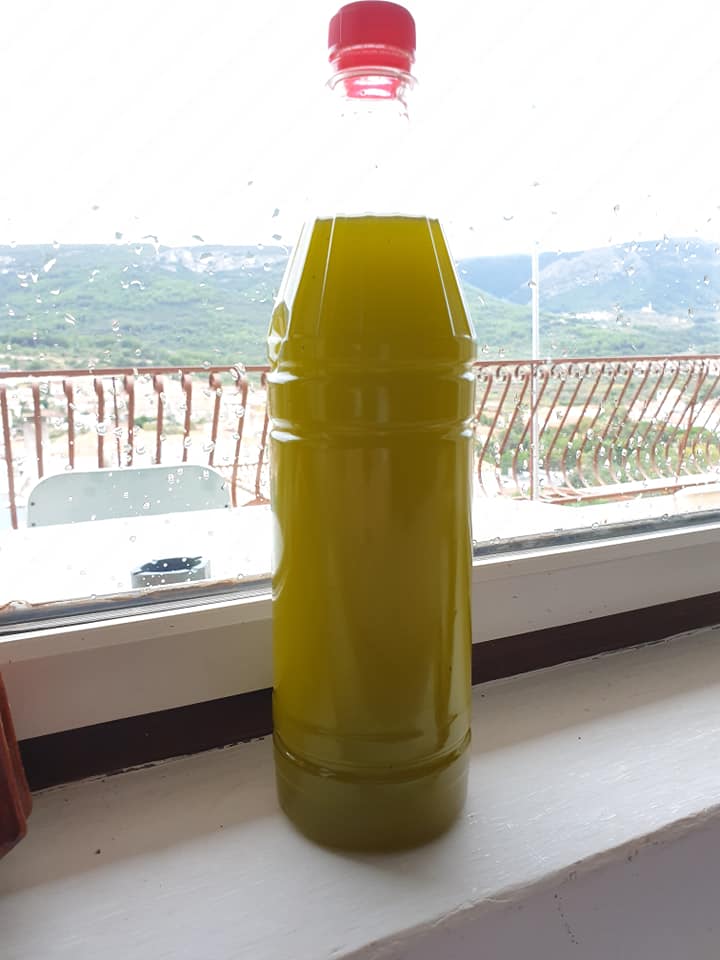
But, as we drove on the motorway back to Varazdin, with 10 litres of freshly pressed oil in the back of the car as our share for helping out, I realised that while it might only have a street value of 100 euro, those ten litres and the experience to produce them were the keys to the heart of Dalmatia itself.
And that, my friends, is priceless.
****
What is it like to live in Croatia? An expat for 20 years, you can follow my series, 20 Ways Croatia Changed Me in 20 Years, starting at the beginning - Business and Dalmatia.
Follow Paul Bradbury on LinkedIn.
Croatia, a Survival Kit for Foreigners will be out by Christmas. If you would like to reserve a copy, email This email address is being protected from spambots. You need JavaScript enabled to view it. Subject 20 Years Book


